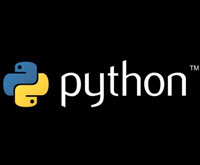为了手动的遍历可迭代对象,使用next()函数并在代码中捕获StopIteration异常。比如,下面的例子手动读取一个文件中的所有行:def manual_iter():
with open(‘/etc/passwd’) as f:
try:
while True:
line= next(f)
print(line, end=”) except StopIteration:
pass
通常来讲,StopIteration用来指示迭代的结尾。然而,如果你手动使用上面演示的next()函数的话,你还可以通过返回一个指定值来标记结尾,比如None。下面是示例:
with open(‘/etc/passwd’) as f:
while True:
line= next(f, None) if line is None:
break
print(line, end=”)
讨论
大多数情况下,我们会使用for循环语句用来遍历一个可迭代对象。但是,偶尔也需要对迭代做更加精确的控制,这时候了解底层迭代机制就显得尤为重要了。
下面的交互示例向我们演示了迭代期间所发生的基本细节:>>> items=[1, 2, 3]>>># Get the iterator
>>> it= iter(items)# Invokes items.__iter__()>>># Run the iterator
>>> next(it)# Invokes it.__next__() 1
>>> next(it) 2
>>> next(it) 3
>>> next(it)
Traceback(most recent call last):
File”<stdin>”, line 1, in<module> StopIteration>>>

 千千惠生活达人注册
千千惠生活达人注册



